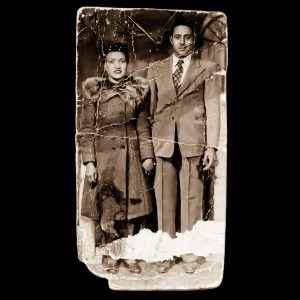The woman we know as Henrietta Lacks was born Loretta Pleasant on Aug. 1, 1920, in Roanoke, Virginia. She was raised by her grandfather on a tobacco farm in Clover, Virginia following the death of her mother Eliza. In 1941 she married David Lacks and shortly after they moved their family to the Turner Station community of Dundalk, Maryland. Henrietta raised the couple’s five children — Lawrence, Elsie, David Jr. (“Sonny”), Deborah and Zakariyya — while David Sr. worked at Bethlehem Steel. David and Henrietta lived in a neighborhood surrounded by family and friends, and Henrietta Lacks frequently helped extended family make the transition to Baltimore by offering housing and meals. Henrietta enjoyed dancing, cooking, playing cards and taking her children to visit Clover on the weekends.
In January of 1951, Henrietta went to The Johns Hopkins Hospital after finding a lump in her cervix. A sample of the mass was taken and a few days later, she was diagnosed with stage 1 cervical cancer. The following month, Henrietta had her first radiation therapy treatment. The doctor took samples of the cervical tissue without obtaining her consent (the U.S. health system did not yet have established practices for doing so) and sent them to a lab to see if they could be grown in culture, as was routine for women with cervical cancer being treated at the hospital. After a brief stay at Johns Hopkins, Henrietta was discharged and she returned home to continue to care for her family. During the next six months, she received radiation treatment.
However, her health eventually deteriorated. Henrietta Lacks was admitted to The Johns Hopkins Hospital in August of 1951. Her tumor had spread, as the cancer was unresponsive to radiation treatment. Treatment ended and her health continued to decline. Henrietta was given medication to ease her pain, and tragically, at the age of only 31, she passed away on Oct. 4, 1951.
But not all of Henrietta Lacks died that day.
She unknowingly left behind a piece of her that still lives today and will outlive us all. Henrietta is the human behind the HeLa cells, the first immortal cell line. HeLa cells have been mass produced, they traveled into space, they were used to help develop the polio vaccine, and they made possible many other landmark scientific discoveries in genetics and the treatment of disease. Henrietta Lacks has been described many ways: as a heroine of modern medicine, a medical miracle and a wonder woman, to name a few. But to her family, she was a daughter, wife and mother, and friend to the world.
Thank you, Henrietta!




